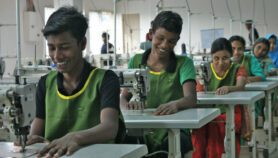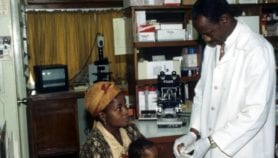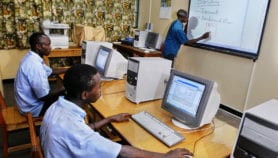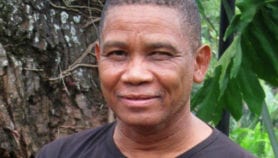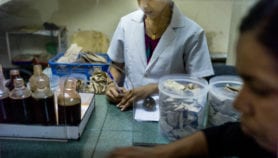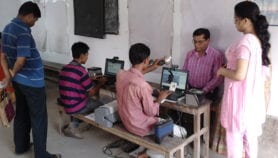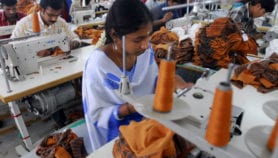By: Bebe Loff
Send to a friend
The details you provide on this page will not be used to send unsolicited email, and will not be sold to a 3rd party. See privacy policy.
For example, researchers should not recruit intravenous drug users to HIV/AIDS trials from regions where suspected drug users’ lives are at risk, and where treatment is not readily available, unless it is possible to ensure their wellbeing. Unfortunately, such research does take place without attention to such human rights concerns.
Vulnerable populations
Researchers could justify conducting clinical trials in ethically difficult environments by arguing that the drugs they are testing could eventually benefit participant communities. But this rationale is flawed.
Communities deprived of rights could not have access to reliable — or any — health services. Furthermore, if they face stigmatisation and potential abuse, these communities often prefer to self-treat rather than to seek medical help. Despite these facts, sex workers and injecting drug users, for example, do participate in clinical trials for reasons that are not often rigorously evaluated.
The focus of efforts to obtain participants’ informed consent before a trial begins is usually on the immediate risks and benefits of a trial; the broader long-term impacts of trials are rarely discussed.
Information given to potential trial participants when seeking consent is seldom more than the drug’s name, and potential benefits and risks, and perhaps some details of travel expenses. The social consequences of participating in trials are not addressed, possibly because researchers lack the skills to do so or because they do not regard the broader social context as their business.
.jpg) Sex workers and injecting drug users, in particular, face many difficulties in HIV/AIDS trials. Communities whose lifestyle is surrounded by illegality begin a trial unable to claim the full basket of rights available to others. Take, for example, the failed tenofovir trials.
Sex workers and injecting drug users, in particular, face many difficulties in HIV/AIDS trials. Communities whose lifestyle is surrounded by illegality begin a trial unable to claim the full basket of rights available to others. Take, for example, the failed tenofovir trials.
Tenofovir trials
Trials of the HIV/AIDS drug tenofovir in sex workers were stopped in Cambodia in 2004 and in Cameroon early in 2005 after claims from participants and activists that they were unethical. The studies aimed to assess whether tenofovir could protect people at high risk — such as sex workers and injecting drug users — from HIV infection.
The main criticisms were that participants were not fully informed about the potential risks of treatment and were not going to be provided with adequate care during and after the trial. Antiretroviral drugs would not be offered to participants who became infected with HIV during the course of the trial.
However, there were other concerns; in particular, the question of how the safety of sex workers in the Cambodian capital, Phnom Penh, could be guaranteed or how access to antiretrovirals could be ensured even if a commitment to provide drugs was given.
The sex workers themselves believed that the researchers concentrated only on issues pertinent to the trial and were not concerned with their welfare. They reported feeling pushed into doing something that they did not understand. In addition, they felt that the safety profile of tenofovir in healthy uninfected people was not well understood. For example, an organisation of sex workers in Phnom Penh, the Women’s Network for Unity, reported that it was aware that tenofovir had been given to people with HIV but could not identify sufficient evidence for its safe use in people who do not have the virus.
Some researchers and policymakers believe that foreign activists told sex workers not to participate in the tenofovir trials. But it was the workers themselves in Cambodia and Cameroon who were dissatisfied with many aspects of the trial, and who refused to participate.
The tenofovir trials represent a historic moment in health research. Participant communities have sent a clear message to researchers and sponsors: "We don’t want you. Go."
Respect for participants
It might sound obvious, but participants in trials must be treated with respect. Researchers should enter wholeheartedly into discussions and negotiations with not only participants, but all people with the power to exercise control over the lives of participants. Such groups include: elected and non-elected national, provincial and local government representatives; the police; and those who have positions of power in the workplace. Discussions should result in an enforceable and transparent agreement that is satisfactory to all parties.
Sex workers and other vulnerable groups need to be given enough support to enter into these negotiations, and not, as happens occasionally, be talked at without translators or advocates.
The importance of dialogue
Researchers, whether in the developed or developing world, are in a position of advantage and power. There is no doubt that they need to think about the impact of their work on those who are less privileged, and to think beyond drug side-effects when ensuring that their interventions do not cause harm.
Scientists can act as an ‘external eye’ in a corrupt environment and be a force for good. But these aims cannot be fulfilled if researchers simply arrive in a country, conduct their trial in social isolation, and then leave. Researchers and sponsors have a duty to invest the time necessary for proper negotiation at all levels. This might take years.
Research teams must assess whether it is justifiable for the scientific enterprise to benefit from the vulnerability of these communities. If so, the way in which the research is to be carried out must be decided through a process of negotiation that recognises where the power rests and where the potential for abuse lies.
Scientists need not only to talk to communities in which they are going to conduct trials, but also to seek out the less frequently heard voices. It is important to identify real benefits for the study population, such as encouraging local healthcare providers to adopt a favourable attitude towards stigmatised groups.
The very vulnerable nature of populations who tend to form the ‘ideal’ setting for HIV/AIDS research makes consideration of their ‘background’ rights all the more crucial. It is also why all those with the power to harm participants’ lives and wellbeing must agree to create a safe zone for participants, enabling only ethically sound research to proceed.
It is notable that the first principle of the recently released UNESCO Universal Draft Declaration on Bioethics and Human Rights states:
"Human dignity, human rights and fundamental freedoms are to be fully respected." This unambiguously places consideration of bioethical issues within a rights framework (see ‘Ethics, science and human rights come together’). Over time this principle will carry with it a range of implications for researchers that these ruminations have only just begun to address.
Interview by Priya Shetty
Bebe Loff is head of the Human Rights and Bioethics Unit, Department of Epidemiology and Preventive Medicine, Monash University, Australia.



